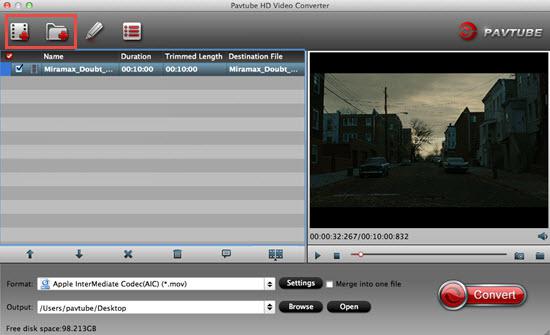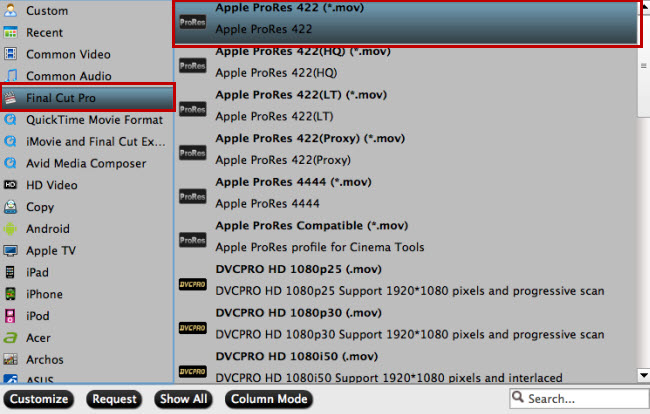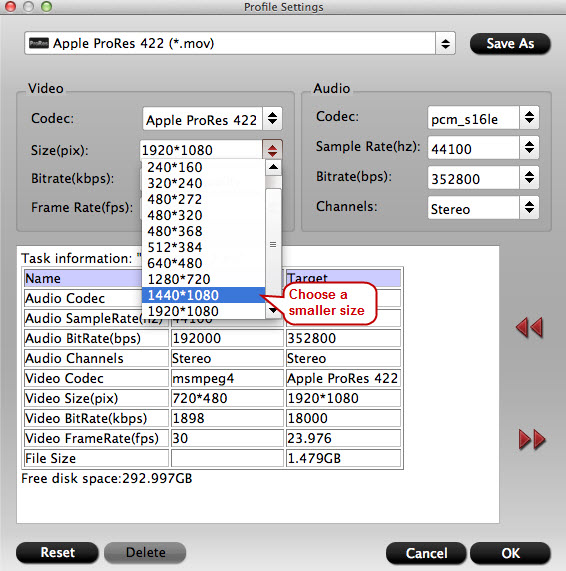Q: Which is better for editing HD videos, FCP or iMovie?
I recommend experimenting with both to see which best fits your needs. iMovie may be sufficient and Final Cut overkill, or the reverse may be true, iMovie too simplistic and the tools in Final Cut are needed. It also depends on what is "small videos" (I'm deducing you mean "shorts" of some sort). If: videos of family gatherings to share, iMovie will likely work for you. If: a short film for mass distribution, Final Cut.
Something you may not know about Final Cut Pro/iMovie:
As a non-linear video editing software which provides non-destructive editing of any QuickTime-compatible video format including DV, HDV, P2 MXF (DVCProHD), XDCAM (via plug-in), and 2K film formats, Final Cut Pro/iMovie made up 49% of the United States professional editing market according to a 2007 SCRI study. Such strong user group still leads to some video format incompatibility issues with Final Cut Pro/iMovie. This is why many people wonder the best video format for Final Cut Pro/iMovie so as to edit video in it at liberty. However, there are still some incompatible video formats that cannot be imported to FCP/iMovie, such like some 4K videos or high definition XAVC videos, etc.
Best Video/Audio Settings for Final Cut Pro/iMovie
Final Cut Pro/iMovie uses QuickTime technology, which means you can import and export almost any almost any QuickTime-compatible file format. But for other formats like WMV, RM, MKV, MPG, etc. Fortunately we here have thePavtube HD Video Converter for Mac(read the review) that can easily convert our original videos to ProRes codec files for FCP. Through this HD Video Converter review, we will know more about this professional video converter for FCP on Mac. What’s more, with the suggestions below, we can also set the files nicely with video and audios.
In order to receive a better effect after editing in FCP/iMovie, here we would like to introduce you some additional useful tips on how to adjust your video and audios which is the best for Final Cut Pro/iMovie.
Best Video Format for Final Cut Pro/iMovie: MP4, MOV
Aspect Ratio: Native aspect ratio without letterboxing (examples: 4:3, 16:9)
Resolution: You can choose different resolutions, all the way to 5K. The lowest resolution supported is 640 x 480. You cannot choose custom resolutions or aspect ratios. This is a huge negative.
Frame Rate: The lowest frame rate possible is 23.976p, and the maximum is 60p. No 12 or 18 fps options.
Audio Settings: Generally, audio only has ‘Surround’ or ‘Stereo’, and the maximum audio bit depth isn’t specified. Sequenced audio is always mixed using 32-bit floating-point values. Tips: Final Cut Pro/iMovie allows you to directly import any audio file format compatible with QuickTime. However, only uncompressed file formats should be used for editing.


Other Download:
- Pavtube old official address: http://www.pavtube.com/hd-video-converter-mac/
- AppStore Download: https://itunes.apple.com/de/app/pavtube-hd-video-converter/id502792488?mt=12
- Amazon Download: http://www.amazon.com/Pavtube-Video-Converter-Mac-Download/dp/B00QI9GNZS
- Cnet Download: http://download.cnet.com/Pavtube-HD-Video-Converter/3000-2194_4-76177786.html
How can we deal with those files which are not suitable for FCP/iMovie?
Step 1. Import source video to HD converter
Download and launch this Mac HD video converter, and click “File” and “Add Video/Audio” to add source videos.

Step 2. Choose FCP/iMovie supported video format
To make it easy and smooth to import source videos to these professional editing systems, you’d better choose an output format fully compatible with Final Cut Pro,iMovie.
Click the format bar to follow “Final Cut Pro” > “Apple ProRes 422 (*.mov)”, “iMovie and Final Cut Ex…” > “Apple Intermediate Codec (AIC) (*.mov)”.

Step 3. Compress source videos (Optional)
If you want to reduce the size of the recorded source videos not only for smooth editing but for other purposes like uploading to Youtube, this HD video converter can definitely meet your demand. In addition to high definition videos, large FLV files can also be compressed.
Hit the button “Settings” near the format bar, and you’ll brought to the “Profile Settings” interface where you can compress source videos by choosing a smaller video size from the “Size” dropdown list.

Step 4. Convert source video to FCP/iMovie
Once everything is settled for conversion, click “Convert” on main interface to make your source videos converted. After conversion, you’ll get the expected and desired video format well accepted by Final Cut Pro,iMovie.
Step 5. Import converted videos to FCP/iMovie.
Run the editing software installed on your Mac, and import the converted videos to FCP,iMovie you usually do.
Related program:
Pavtube Media Magician / Mac Version: A nice camcorder assistant manager, lossless camcorder video joiner, MTS/ M2TS/ MXF/ MOV/ MKV/ TiVo/ WMV/ AVI/ MPG converter and editor. Meamwhile it supported upload edited video to YouTube directly.
Read More: